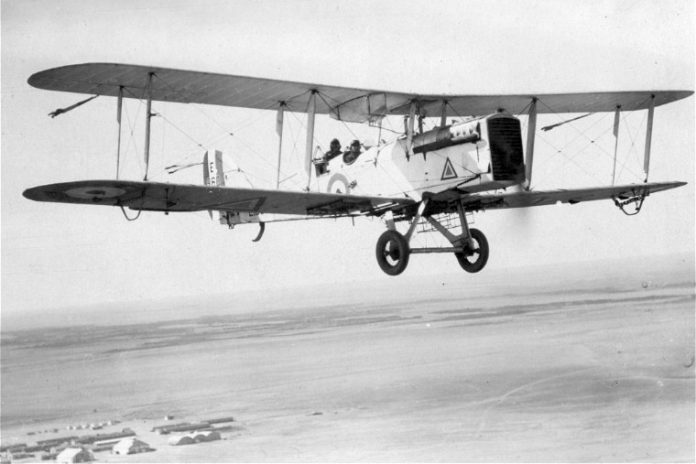One hundred years ago the people of Burao, Somaliland, revolted against British imposed taxation. Winston Churchill ordered the bombing of an entire city, writes Isabel Ringrose
On Winston Churchill’s orders in February 1922, RAF planes bombarded a town in former British Somaliland, east Africa, for rebelling against colonial taxation.
“The inhabitants of the native township were turned out of their houses, and the entire area was razed by a combination of bombing, machine-gun fire and burning,” wrote one historian.
British authorities in Somaliland announced they would impose a heavy tax and begin a programme of disarmament, including in the town of Burao. Somalia at the time was split up and controlled by Italian and British forces.
The British Somaliland protectorate was established in the late 1880s after Britain grabbed control of territories on the coast. The purpose of the tax was to raise funds to run the Somaliland protectorate, which was seen as “costly” to the Colonial Office’s finances.
It was also to strengthen British control in Somaliland after the Dervish War against a decades-long resistance movement. The Dervish movement was founded in Burao in 1899.
n 1920, British forces launched their fifth and final campaign against the movement. Following three weeks of battle, the Dervishes were finally defeated after 20 years. In response to the new tax imposed on them, the people in Burao organised riots to resist the British tyranny they hated.
Local Habar Yoonis clan fighters revolted and clashed with British soldiers in opposition. They targeted British government officials, resulting in shootouts.
On 24 February Captain Allan Gibb called out the Camel Corps company, mainly composed of Somalis, to put down a disturbance. But they refused to shoot at the rioters. Gibb went forward with his interpreter and was shot and killed. Colonial British authorities panicked as they realised they could not contain the uprising.
They asked then Secretary of State for the Colonies Winston Churchill to send reinforcements from Aden in Yemen. Sir Geoffrey Archer, Governor of British Somaliland, wrote to Churchill for the confirmation of his order for two aeroplanes required for “about fourteen days.”
“We propose to inflict fine of 2,500 camels on implicated sections, who are practically isolated and demand surrender of man who killed Gibbs,” he wrote. “He is known. Fine to be doubled in failure to comply with latter conditions and aeroplanes to be used to bomb stock on grazing grounds.”
In brutal retaliation to the rebels’ resistance, Churchill allowed planes from the Aden Number 8 Squadron RAF to be sent and troops were placed on standby.
Churchill said in parliament, “Immediate dispositions of troops became necessary in order to ensure the apprehension and punishment of those responsible for the murder.”
Within two days the planes arrived in Burao and bombed the town, practically eliminating it. After the destruction of Burao and weeks of unrest, the leaders of the rebellion compromised.
The Habar Yoonis agreed to pay a small fine in livestock for Gibbs’ death. But they refused to hand over the individual who fired the shot. He was later named as young warrior Faacuul Adan Jugle of the Reer Wayd and was celebrated as a hero.
As a result of failing to implement the changes, Archer abandoned the tax and disarmament policies—a victory for native Somalis living under British rule. Archer was soon replaced, and other policies in the area were revised because of the resistance.
The brutality of Churchill and the British colonials’ response to the uprising shows the cruelty of imperialism. It also shows how they feared revolt and rebellion, because of the power these had. The strength of the people of Burao to fight back against the British machine is an inspiring story of resistance against the Empire.
Socialist Worker




























